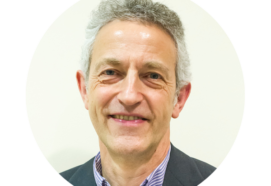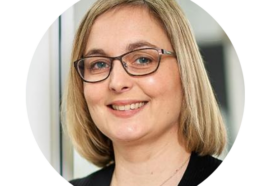In this In Conversation podcast, Dr. Seonaid Anderson is joined by Dr. Maddie Groom, Dr. Holan Liang, Dr. Camilla Babbage, Emma McNally, and Dr. Andrew Curran for a round table discussion on Tics and Tic Disorders, such as Tourette Syndrome.
Discussion points include:
- The build-up of momentum and awareness raising around Tics and Tic Disorders.
- The lack of clear clinical pathways in many parts of the UK for how referrals for Tics and Tourette’s are dealt with.
- The importance of patient and family voices in service development and the challenges people with Tourette Syndrome are facing in accessing services.
- What can be done in terms of getting the attention of Commissioners or changing the structure.
- How NICE guidelines for Tourette Syndrome could change the field.
- How best to support healthcare professionals in their work regarding Tics and Tourette Syndrome.
This episode is part of The Association for Child and Adolescent Mental Health’s series on Tourette Syndrome and Tic Disorders. The series explores the evidence-based research on Tourette Syndrome, and other Tic Disorders, as well as the education, treatments, and research in this area.
#ListenLearnLike
Subscribe to ACAMH mental health podcasts on your preferred streaming platform. Just search for ACAMH on; SoundCloud, Spotify, CastBox, Deezer, Google Podcasts, Podcastaddict, JioSaavn, Listen notes, Radio Public, and Radio.com (not available in the EU). Plus we are on Apple Podcasts visit the link or click on the icon, or scan the QR code.
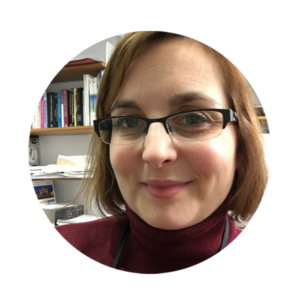
Maddie Groom is Associate Professor of Applied Developmental Cognitive Neuroscience at the University Of Nottingham. Maddie’s research seeks to understand the causal mechanisms of neurodevelopmental disorders with a particular interest in the co-occurrence between ADHD, autism and Tourette Syndrome. She also works with a range of stakeholders including those with lived experience and clinical expertise, to increase awareness of neurodevelopmental differences and to improve healthcare services. Maddie is Director of the Centre for ADHD and Neurodevelopmental Disorders Across the Lifespan (CANDAL), a research Centre of Excellence in the Institute of Mental Health and Lead of the Children & Young People’s theme for the NIHR-funded MindTech Health Research Centre. She also runs the MSc Mental Health: Research & Practice at the University of Nottingham.

Dr. Holan Liang is a Senior Clinical Research Associate at Cambridge University Autism Research Centre and honorary Consultant in Child and Adolescent Psychiatry at Great Ormond Street Hospital. She was formerly psychiatry lead at the National and Specialist Tic Service at Great Ormond Street Hospital. Her special interest is in neurodevelopmental disorders including ADHD, Autism Spectrum Disorder, Tourette syndrome and intellectual disability. She has been Honorary Associate Professor at UCL and has been Honorary Senior Lecturer at the UCL GOS Institute of Child Health, Clinical Research Fellow and Clinical Lecturer at The Institute of Psychiatry, Psychology and Neuroscience.
Dr Liang has over 18 years’ experience in specialist child and adolescent psychiatry including leading neurodevelopmental disorders services in London. She is involved in clinical research including clinical drug trials and international genetics studies. She has been an elected member of the Royal College of Psychiatrists Child & Adolescent Psychiatry Faculty Executive Committee. She is actively involved in teaching undergraduate and postgraduates in neurodevelopmental disorders for over 15 years at King’s College London and University College London and peer reviews proposals and papers for NIHR and the BMJ. She has written 2 books Inside Out Parenting and A Sense of Belonging, and for The Guardian, The Telegraph and RED Magazine.
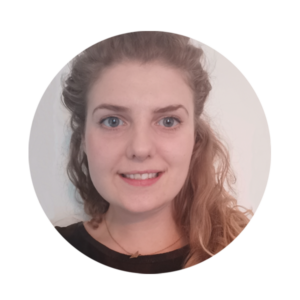
Camilla Babbage is an Early Career Research Fellow with MindTech at the University of Nottingham. Camilla’s research began exploring how an app could support wellbeing in young people with Tourette Syndrome during her PhD and Camilla continues to support research to understand how access to healthcare resources for TS could be improved and how this research could implemented into policy, alongside Dr Maddie Groom.
Camilla’s main area of work is in the Digital Youth project, exploring how digital mental health interventions can be used to support young people’s mental health. She is especially interested in how we can use involvement to improve the engagement and effectiveness of interventions, and how we can implement these interventions into practice in the most feasible and accessible way.
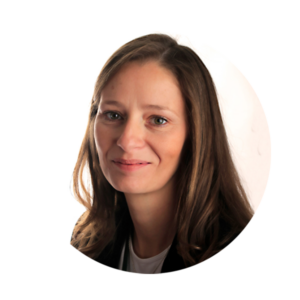
Emma is both a successful business executive and an avid campaigner for the needs of people with Tourette Syndrome (TS). She is passionate about the cause and has worked tirelessly on improving the access to diagnosis and treatment. Emma joined Tourettes Action, in January 2022, as their new CEO and has a son with TS. Tourettes Action works in England, Wales and Northern Ireland and is the leading support and research charity for people with Tourette Syndrome and their families. The charity provides a wide range of support services and wants people with Tourette Syndrome to receive the practical support and social acceptance they need to help them live their lives to the full.
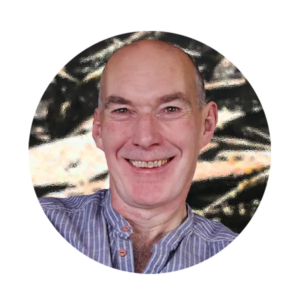
Andrew is a paediatric neurologist who sent 25 years of his clinical life specialising in tic disorders. His driving goal is to find out who the whole person is and find strategies to meet their individual needs. He continues to support people with tics through his involvement with the national Tourettes Syndrome experts committee.

Seonaid is a chartered research psychologist and freelance neurodiversity consultant with many years experience in neurodevelopmental disorders. She provides support to research professionals at every stage of the research process and to healthcare experts in their clinical work, for individuals, universities as well as the public sector. She provides specialist advice and guidance on the treatment and management of a range of neurodevelopmental conditions such as autism spectrum disorders (ASD), attention hyperactivity disorder (ADHD), Tourette Syndrome, dyslexia, and mental health. She is on Twitter @Seonaidanderso2 and can be found on LinkedIn.
Other episodes
- Episode One ‘Teens, Tics, and Tech’ – Camilla Babbage ‘In Conversation Tourettes Syndrome’
- Episode Two ‘Education, and Educating, about Tourettes’ – Lucy Toghill ‘In Conversation Tourettes Syndrome’
- Episode Three ‘‘Tics, and Tic Disorders; the sudden onsets and influences of the pandemic’ – In conversation with Dr. Tammy Hedderly’
- Episode Four ‘Cultural Differences in Tics and Tic Disorders’
- Episode Five ‘Tic Disorders and Tourette Syndrome: Exploring the INTEND Project’
- Episode Six ‘ADHD and Tic Disorders: Discussing the SATURN Trial’
- Episode Seven ‘Understanding Tic Disorders: A Round Table on Diagnosis, Treatment, and Research’
- Filmed recording ‘Understanding Tic Disorders: A Round Table on Diagnosis, Treatment, and Research’
Other resources
- ACAMH Topic Guide – Tourette Syndrome
- The ADHD Foundation Neurodiversity Charity
- Tourettes Action
- Tics and Tourette Across the Globe
- European Society for the Study of Tourette Syndrome
- #TourettesHurts – Tourettes Action Awareness Month Video
Transcript
[00:00:09.936] Dr. Seonaid Anderson: So, hello and welcome to this roundtable conversation on Tourette syndrome, which forms part of a series for the Association of Child and Adolescent Mental Health, or ACAMH for short. I’m Dr. Seonaid Anderson. I’m a Research Psychologist and Neurodiversity Consultant with a strong interest in Tourette syndrome, and I’m excited to be here today as part of this series of podcasts that ACAMH is hosting on Tourette syndrome.
Over the course of this series, we’ve been looking at evidence-based research about Tourette syndrome and other tic disorders, as well as education, treatments and research in this area. And today, I’m honoured to be speaking with a group of people with a strong interest in tics and Tourette syndrome, and I will ask each of them now to introduce themselves. So, I’m going to start, in no particular order, with Maddie Groom. Maddie, could you introduce yourself for people that are listening, please?
[00:01:10.804] Dr. Maddie Groom: Sure. Yes, I’m Maddie Groom. I’m an Associate Professor at the University of Nottingham. I lead a research centre which focuses on ADHD and other neurodevelopmental disorders, including Tourette syndrome, and we have a lifespan focus on the work that we do. And we carry out research that spans a whole range of different topics, all the way from trying to understand the mechanisms of different conditions and difficulties, all the way up to trying to improve healthcare services for people experiencing those difficulties. So, I do research and teaching in that area, and I also lead the national Tourette syndrome steering group.
[00:01:46.674] Dr. Seonaid Anderson: That’s great, and we are going to be hearing about the great work that you’ve been doing, along with colleagues. Okay, if I can go to Ho Lan. If you could perhaps introduce yourself.
[00:01:58.377] Dr. Ho Lan Liang: Hi, my name’s Dr. Ho Lan Liang. I’m a Consultant Child and Adolescent Psychiatrist. Until very recently, I was the Psychiatric Lead for the Great Ormond Street Hospital Tourette service. I recently made the move back into academia, and I’m currently Senior Clinical Research Associate at Cambridge University Autism Research Centre. My interests are in neurodevelopmental disorders, so autism, ADHD, and of course, tics and Tourette syndrome.
[00:02:27.609] Dr. Seonaid Anderson: Wonderful, thanks so much for joining us. Okay, Camilla Babbage. Camilla, can you tell us a bit about yourself, please?
[00:02:34.762] Dr. Camilla Babbage: Hi there, so, my name is Camilla Babbage. I am a Research Fellow based at the Institute of Mental Health, at the University of Nottingham. My background, I did my PhD in Tourette syndrome, looking into developing a wellbeing tool to support young people who also have tics. Currently, I do work, sort of, in the Tourette’s field, mainly around qualitative, understanding experiences of people accessing healthcare for their tics, and trying to support with policy implementation.
[00:03:09.494] Dr. Seonaid Anderson: Thanks, Camilla. If we can go to Emma McNally.
[00:03:13.710] Emma McNally: I’m Emma McNally. I’m a mum of a child with Tourette syndrome, and I’m also the CEO of the charity, Tourettes Action. At the charity, we support anyone who has Tourette’s, be that children or adults, and we support their families, as well, along the journey from diagnosis, once they’re diagnosed, then support within education and employment, and anything else that they’ve got going on in their life that they need support with for their Tourette’s.
[00:03:40.766] Dr. Seonaid Anderson: Thanks, Emma, and finally, over to Andrew Curran.
[00:03:44.754] Dr. Andrew Curran: Hi there, I’m Andrew Curran. I’m a Paediatric Neurologist. I have 30 years of clinical experience of caring for neurodisability in all its aspects, and then neurodiversity, with a strong interest in tics, which is something I’ve explored for the last 25 years. I also have a lifelong habit of researching how the ordinary brain works, and then translating that into disease or capability paradigms, and so, it’s an absolute pleasure to be here today, thank you.
[00:04:17.131] Dr. Seonaid Anderson: Thank you so much for joining us, and what a fantastic panel of people to get together, and such experience altogether. I’ve been working in this area for about ten years, but I think I’m trumped by everybody here, certainly collectively, who’s been working both in research and clinical work, as well.
So, the main aim of speaking today is I’ve been feeling, and I know that in discussions with you, my colleagues, but I feel it’s really timely to have a discussion about tics and tic disorders, and the current situation in the UK, at the moment. And I’ve been feeling a, sort of, building of momentum in the last year or so, which is really exciting, and when I say that, I mean, there seems to be more discussion about tics and more recognition that they’re not, in fact, rare, as once thought. And, in recent times, there feels like there are more research papers being published and more funding being given to this area. And also, more involvement from people affected by Tourette syndrome and their families, and hearing more of their voices, voicing their concerns, and their needs in terms of living with tics.
So, I’d love to hear from everybody about the different activities that have been occurring in the UK, if you also recognise this, kind of, build-up of momentum and awareness raising. So, hopefully, we can cover some main issues today about how we can help people living with tics access services and support for their tics, but also, their mental health, and what the panel might feel – what changes would really help in terms of how we can better serve this patient population.
So, if I can come to Maddie. Hearing what I’ve just been saying, Maddie, is that something that you also feel is currently happening, as well, there’s a momentum building in this area in terms of interest?
[00:06:14.622] Dr. Maddie Groom: Yeah, I think so. I mean, I think Nottingham University has got quite a long history of carrying out research into Tourette syndrome. I think we’ve always had a good understanding and a good awareness of tics and Tourette’s and the need for more research in this area. What I think has been quite nice over the past couple of years is that we’ve really now tried to focus more of our efforts on how we can translate our research into clinical practice, really trying to reach this population and improve healthcare services and treatments for them.
I think there’s still a long way to go. We all know that children and young people, adults with tics and Tourette’s, still struggle to access services. There’s no clear pathway in many parts of the country for how referrals for tics and Tourette’s are dealt with, and we are really trying to advance and improve that situation at the moment. You know, we need the attention of people responsible for designing and delivering those services to really start listening to us and paying attention to what this population needs.
[00:07:13.618] Dr. Seonaid Anderson: And why are there no clear clinical pathways? Why is there difficulty in this area?
[00:07:18.489] Dr. Maddie Groom: I think it’s a combination of factors. I mean, I think there’s always been a misperception that tics and Tourette’s are rare. They’re not rare. This is something that is experienced by around one in 100 children, young people and adults, of varying severities. And I think, unfortunately, tics and Tourette’s seems to fall slightly between different pathways. So, some people think that it should be considered within Neurodevelopmental Services. Sometimes people try to fit it in within Child and Adolescent Mental Health Services, sometimes paediatric neurology or neurology, and Adult Services, you know, a really mixed bag. So, I think there’s no, sort of, ownership or responsibility. There’s no, sort of, single specification or structure for how people should be accessing support, and which types of professionals, which types of services, should be seeing them.
So, this is something that we’re trying to develop at the moment, to try and go out to regional stakeholders in different parts of England and talk to them about, well, what do they think would be a good, effective service for tics and Tourette’s, and what do we need to do to make that change happen? What would be a really good, clear, effective pathway, that will result in appropriate assessment, treatment, and ongoing support for children, young people and adults? So, the work is happening, but it’s, I think, at the moment, still very much the case that people with tics and Tourette’s fall between lots of different pathways, and they’re just not being seen, effectively.
[00:08:45.295] Dr. Seonaid Anderson: I think that’s very interesting and I’m wondering if Ho Lan or Andrew would have some comments on that, having worked, also, clinically in this area, and seeing young people for diagnosis and treatment?
[00:09:00.527] Dr. Ho Lan Liang: I certainly think that in my experience at the Tourette service at Great Ormond Street Hospital, that, you know, we were experiencing the stress and frustrations from families saying exactly what Maddie and Seonaid have been describing, in terms of being bounced between paediatrics, or child mental health, and really struggling to find the support that they needed for tics and Tourette’s. When they eventually came to our service, of course, there was, also, the additional difficulty of finding a service that was supposed to be designed for tics. But many of the children that we saw had additional neurodevelopmental difficulties, and we were very fortunate at GOSH to have the resources to be able to diagnose ADHD and autism, if we saw it. But I know that that’s not universally available, but those co-occurring conditions are so common in Tourette’s, and it makes no sense, really, for families who have already been bounced around to then be told to go back to another waiting list for ADHD or another waiting list for autism, when we know that conditions so frequently co-occur.
So, I think there is something to be thought about in terms of how services are commissioned, because I feel at the moment, that there’s a lot of silo working. So, specific services for ADHD, specific services for autism and specific services for tics and Tourette’s. And in an ideal world, you know, services should be developed for the needs of the child, whatever they are. So, if you happen to see a Clinician, they should be able to evaluate your mental health needs comprehensively, and I’m sure that this would ease the patient journeys for families.
[00:10:53.398] Dr. Andrew Curran: Yeah, no, I agree entirely with that. The – it’s a long-term battle of mine to try and get people shifted away from labels and into caring for whole human beings. And as you quite rightly say, the desire of Clinicians to silo is not in any way a criticism. I think that they feel they do their best jobs if they’re siloing. But actually, it doesn’t really serve the patient population that we all care for, because no human being is a label. They are complex people, with background story, attachment experiences and their neurobiology. And I agree exactly that we need to be viewing whole humans, identifying what we can support them with, and if we can’t support them with everything, then finding other people inside a team who can help them with that.
And I think tics falls into that, because we know that neurodiversity and the neurobiology associated with neurodiversity, has a very high incidence of tics. So, if you happen to have tics and you’re seeing someone who only looks after tics, they’re missing a large part of your capabilities and what needs supported.
[00:12:09.174] Dr. Seonaid Anderson: Thank you so much, Andrew, and I think that’s definitely – it’s so interesting to hear you both talk about that, and I think it feels like one of the issues is that there are so many different types of healthcare professionals that could be involved in somebody’s journey from diagnosis and perhaps through treatment, that as Maddie said, or Ho Lan, it feels like it might be falling between services. And, also, this other issue of tics not being singular, but in fact, coming with comorbidities, such as ADHD and OCD. And I know that when I speak to healthcare colleagues, I often say, “Well, if you’re treating ADHD and OCD and other health conditions, there will be tics there.” And so, perhaps this issue of education and informing everybody better.
I should say, also, there is a topic guide on Tourette syndrome on the ACAMH website, and also the charity, Tourettes Action, has written, and continues to make fantastically clear and helpful information for a whole range of people, for parents, for adults, for healthcare professionals, as well. Maybe we can bring in Emma and hear your take on what we’ve discussed so far, Emma. And do you feel there’s a building momentum at the moment in terms of the patients getting involved? It’s probably partly down to you and your team there, and all the good work that you’re doing, that more people are getting involved.
[00:13:34.857] Emma McNally: What we hear all the time is that – we say patients are basically, falling through the gaps and no specific service seems to take ownership for them. So, what happens is, you’ll hear – we hear from families all the time, where the child might have been referred to Paediatrics and Paediatrics will say to them, “Oh well, we can’t see you because you haven’t got a co-occurring condition of autism or ADHD. You need to go to CAMHS.” They get referred to CAMHS, and then CAMHS say, “Oh, sorry, we can’t accept this referral because you haven’t got co-occurring anxiety, so we think you should be seen by paediatrics.”
And they spend – lots of them spend years getting bounced round from one service to another to another, and then, during this period, they then possibly will go onto get mental health condition. So, they will go onto get anxiety, so then they will get accepted by CAMHS. Whereas in the first place, they didn’t actually have anxiety. They went onto get that because of the lack of support that they’ve been getting. So, we hear that all the time, that they’ll get bounced round. Some of them might get referred then onto a specialist service, like at GOSH, for instance, and when they do get there, they then will get diagnosed with possibly ADHD, as well. Whereas, if they’d have been seen in the very first instance by paediatrics and got a full assessment, they could have got the diagnosis earlier on.
So, we just hear, basically, that they spend years being bounced round, bounced round the system, getting no further along. They’re then struggling within school, ‘cause they don’t know what’s going on, they don’t know what they’re dealing with. They’re struggling at home, because their families don’t know what’s going on. Their parents might possibly be telling the child off for tics that they’re doing, because they don’t understand that it’s tics. And it’s just a really tough time for families because they’re spending all this time being bounced round.
And we tell families to complain if there’s no service in their area, because there should be a service. It’s a requirement that your local area should be able to cater for the health needs of people who live there, but that isn’t happening. We’re trying to, basically, get the voices of the parents and the adults with Tourette’s to be louder, so that people can hear what’s going on. Because I think they’ve been quiet for a long time, and, kind of, just put up with things, thinking, oh well, this is the way it is. But it shouldn’t be that way, so we’re encouraging them to complain and make their voices heard, really, and I think in some areas, it’s working. If a lot of parents in a particular area complain, then we’re seeing new services being created, which is really good.
[00:16:12.840] Dr. Seonaid Anderson: What…?
[00:16:13.686] Dr. Andrew Curran: I think – just can I add to that, that the issue typically, in service development, historically, has always been a service develops because an individual healthcare professional thinks it’s a good idea and puts in the work and the energy to get that service to happen. I think, as this is going out to a broader audience, I would put a request out to all the individual healthcare professionals who see this, is have a think. This is a common life altering condition and diagnosing and managing it, actually, is incredibly important. It doesn’t take an awful lot of work. Then ask yourself, as an individual healthcare professional, actually, can I start helping these people and their families? Because it’s a family wide condition. If your child has got a substantial tic disorder and is indeed, developing psycho-emotional issues from that, the whole family is affected by that, and the family’s life trajectory is altered.
[00:17:11.678] Dr. Seonaid Anderson: Thank you so much, Andrew. I think we’ve all come across misunderstandings, still, about Tourette syndrome in terms of, even healthcare professionals sometimes not being informed as well as they could be, and saying to patients, “Well, you’re not swearing,” for example. And we know that, in fact, that’s not one of the necessities for a diagnosis, or they just don’t know enough about this at all. They have a lack of this in their training, also.
I know that, Camilla, also, we’ve heard – you were involved in making an animation, also, with the voices of people with Tourette syndrome. What did you take away from that in terms of what challenges they’re facing?
[00:17:54.551] Dr. Camilla Babbage: I think the things that we got from the analysis of those focus groups that we ran and then, onto the animation that we developed, similar to what Andrew was just saying, that it was really dependent on one individual in the service saying, “This is important. This should be listened to.” And that could, like, make or break someone’s experience within getting access to healthcare support. And I think we’ve also seen instances where people have moved out of those services and then, suddenly, the access to support has gone from that area. And then people suddenly don’t have anyone to go to, and it just becomes impossible to really reach out and get support. Which I think Emma did a lot of work around that particular instance of someone leaving a service and then, suddenly, no families have anywhere to go.
We also saw in the themes around this idea that people were having to come up with their own preventative strategies at home, or having to seek their own support through social support groups, to get any, sort of, access to any – you know, even psychoeducation, or – that there’s just nothing formal available for these people that really, really do need better formalised support within the services. Maddie, did you have anything you wanted to add?
[00:19:21.896] Dr. Maddie Groom: Yeah, I think it was really insightful, wasn’t it, trying to capture those experiences and make sense of them? But, yes, I think overall, there was just that general feeling that there are some individual examples of people successfully getting the support they need, but it was very piecemeal, and it’s the structural, sort of, systems that are missing to underpin that support that’s needed.
And I think from the workshops we’ve been doing in local areas, what we’re finding is that on the ground, there are a lot of healthcare professionals who actually feel quite frustrated that they don’t get the support from management or from the ICB structures, to deliver healthcare for tics and Tourette’s. Now, obviously, we’ve got a fairly selected sample for the workshops, ‘cause people sign up ‘cause they’re interested in this area. But nonetheless, there’s a lot of people out there that we’re finding who would like to have training in how to effectively assess and treat tic disorders, and they can see that this should be part of what’s offered in their paediatrics or CAMHS services.
They also have some really useful suggestions for pathway design and how things could be better structured to support these children and young people, and also, adults with the condition. But without the structures in place, it’s going to remain piecemeal. It’s going to remain down to individual healthcare practitioners, who see the need, see the problem and decide to do something about it themselves. But really, it’s structural change that needs to happen to support all of that.
[00:20:48.994] Dr. Seonaid Anderson: And we should give a title to the animation. It was called, Maddie, “Struggles of Living with Tourette Syndrome,” is that right?
[00:20:55.684] Dr. Maddie Groom: Yes, it was. Yeah, and one of the participants who contributed to the focus groups, at one point, there’s a really moving part of the animation where she just says, “For the love of God, just refer me.” And this is something that we’ve really tried to capture. We use this quotation on the publication that we’ve submitted, to be published in a peer-reviewed journal. Looking at using it in a policy brief that we’re creating at the moment, ‘cause it really just so nicely captured that experience and that expression of frustration. “Look, I’m coming to see you. I’ve clearly got tics. Don’t shut the door on me. Just, please, for the love of God, just refer me.” And I think that’s a really resonating piece from the animation.
[00:21:37.197] Dr. Seonaid Anderson: So, it feels like we’re coming to a point where we can say that the services seem to be very patchy across the UK and that its commissioning, and the structures themselves. There may well be lots of healthcare professionals that are eager to learn and eager to do as much as they can, of course, to help their patients, but in fact, it’s commissioning. Emma, what can we do in terms of getting the attention of the Commissioners or changing the structure? What would your input be to that? With something like NICE guidelines for Tourette syndrome? They certainly exist for other health conditions.
[00:22:17.235] Emma McNally: I think that would be the key to unlocking the doors, if I’m honest, because we get a lot of Commissioners actually contacting us at the charity, saying that they’re looking to create a new service. They’ve had, obviously, lots of complaints from parents, and they’re now looking to create a service, but where do they start? They don’t know where to start. They say they’ve looked through, there’s no NICE guidelines, and they’re not sure what to do about a service. And I think a lot of the time, services don’t get created because they actually don’t know what to do and how to create one. So, I think it’s, for them, a lot of work, whereas, if NICE guidelines were in place telling them, “Right, this is the service structure you should create, this is the training that your staff should go on,” I think that would be a big help to people.
[00:23:02.397] Dr. Seonaid Anderson: And it feels as though there’s already a population of Clinicians and other interested colleagues that would be willing and happy to input to those, as well, if necessary. Andrew, Ho Lan, would you – what, from a clinical perspective – NICE guidelines, how would they change the field?
[00:23:24.978] Dr. Ho Lan Liang: I think they would be really, really helpful, but I just want to voice the frustration of Clinicians, as well. Because it’s a lovely quote from the animation, you know, “For the love of God, refer me,” but from the Clinician’s perspective, I can imagine them wracking their brains going, “But to where?” You know, so it’s a shared frustration by Clinicians. And as we mentioned, the services are piecemeal, and I absolutely echo what people have said in terms of it does lie with commissioning. And if NICE guidelines are required to get Commissioners on board to think about pathway structures and system change in how Tourette’s is managed, then that’s great. I do think it is a valid starting point. But I think from a Clinician’s perspective, it does require Commissioners to commission the services, because as other people have already mentioned, if it’s reliant on Clinician interest, as the Clinician moves throughout their career, it means the service goes with them, and it will remain a patchy service delivery, which is not ideal.
The other thing I wanted to mention, and I don’t know if this is the correct time to mention it, is in terms of equality of access to services. We recently did an audit on our service at Great Ormond Street, and we found that different ethnic minorities were being referred to our service, which is a tier four national specialist service, in different proportions. So, I think any service that is commissioned would also need to be equitable in terms of access. And what we were finding was that it wasn’t that we were triaging away children from particular ethnic minorities, but particular ethnic minorities were just not being referred to our service.
[00:25:15.477] Dr. Seonaid Anderson: I think there’s – there definitely seems to be a paucity of – or challenges, or even barriers, to ethnic minority individuals being able to access clinical services. And certainly, from the research that I’ve been involved in, it’s difficult. How can we do better to get those groups involved in our research projects, as well? ‘Cause they’re often under-represented in research too, so we definitely need to have those discussions, I think. Andrew, please go ahead.
[00:25:46.450] Dr. Andrew Curran: I was just going to agree that the provision of NICE guidelines moves towards a national availability, so I fully support that. Just to highlight that Ho Lan’s service is tier four, and I happen to know that it’s extremely good, but actually, a Tourette’s service can be delivered at tier two, and, actually, potentially, at General Practice level. Just so no-one’s put off by the fact that a tier four service is providing it. It’s not – once you get your head round it, it’s not a challenge providing an effective and good service for people with tics.
[00:26:28.675] Dr. Seonaid Anderson: And I think if we can help provide training, for example, and information, then this, as you say, it doesn’t need to be just specialist centres, but in local services, and it should be, is the feeling that I’m getting from what you’re saying. And Maddie, I’d like you to talk a little bit about the steering group that you’re leading, as well. That sounds really like a, kind of, force that’s driving a lot of these discussions forward. Can you tell us a bit more about that?
[00:27:01.100] Dr. Maddie Groom: Yeah, absolutely. It’s been a really great initiative. It, sort of, came about quite naturally because we made contact with Emma a few years ago as part of a campaign that she was running then, and invited a few people to come to a meeting to talk about some of these issues that we’ve all been discussing today, which snowballed, and ended up being a huge online meeting. And then we’ve just grown and grown ever since. We meet online quarterly, and we talk about all of these issues, but also, how to try and deliver change, research that we need to do to make the evidence case for delivering change in this area.
It’s particularly interesting because in research, we are really encouraged, and we really value, working with patients and the public, with healthcare professionals, so that we’re not just, you know, Academics stuck in an office, coming up with ideas that don’t really matter to anybody else. But usually, it’s quite hard to engage with those groups in a natural way, but for the Tourette’s steering group, it has been a really great force for change. And some of the research projects that we’ve now developed and have got funding for, have been generated by the discussions in the steering group, and include steering group members as co-applicants when we apply for funding for the research.
So, yeah, it’s been fantastic, and it’s enjoyable to be part of those discussions. And I think we are now starting to feel like some change is happening, and there’s still a long way to go, but a great bunch of people to work with. And I think it also gives us a stronger voice, because one of the main aims of the group is to reach out to these policymakers, decisionmakers, and try and let them hear what we’re saying and the importance of making change. And I think the group has all the right people within it, from people with lived experience, charity representatives, healthcare professionals, Academics. All the right people involved, to really have that representative voice and tell the decisionmakers what needs to happen to make change.
[00:29:04.384] Dr. Seonaid Anderson: It feels like a very positive initiative indeed, and hopefully, by gathering the research evidence, then, this can show where the gaps are, and also, you’re coming up with solutions and suggestions in how things can be done better. And Emma, we shouldn’t forget that, also, within the calendar year, there is an Awareness Month for Tourette syndrome, and an Awareness Day. I know that Tourettes Action always have lots of activities in that. Can you tell us a little bit about that?
[00:29:37.199] Emma McNally: Yeah, so Tourette’s Awareness Month runs from the 15th of May ‘til the 15th of June, and the actual Awareness Day is on the 7th of June. We’ve got lots going on at the charity. Our campaign this year is called #TourettesHurts, and we’ve got five posters created, each giving a different message. One of them talks about the pain associated with Tourette’s. One talks about the exhaustion that you can feel if you’ve got tics all day. Another one talks about the social exclusion that you can feel. Another one talks about the lack of medical provisions out there, and how that can have a massive burden on people and their families. And the last one talks about the need to suppress, not because you want to, but because – to fit in with the social norm. So, basically, you’re suppressing for other people.
Those posters have now been released and we’ll get all the communities behind them, putting them up in their local area, sharing them. And on Awareness Day, we’re asking buildings to light up green in support for the Awareness Day. So – and we want to, basically, try and show that when support is in place for the condition, that things don’t hurt quite as much. So, if medical provisions were in place, if there was education and employment support, there was understanding from the general public, things wouldn’t hurt quite as much, and it would be a lot easier for people to manage.
[00:31:05.985] Dr. Seonaid Anderson: Thanks, Emma, and I think it’s great that you’ve been able to also get patients to raise their voices. And perhaps, through your actions, as well, we can apply some gentle pressure, along with the research evidence, as well, to push for better services and better access for everybody in the UK that needs tic and Tourette syndrome support, as well.
So, just before we, sort of, round up, if everyone could give me some ideas, or some overview that they have, but how can we – as this is mainly a clinical and practitioner audience that we’ll be speaking to through ACAMH, how can we best support healthcare professionals in their work in regards to tics and Tourette syndrome? Those listening to us now, what would we – what would be a – something we can say to them and share with them? Andrew, would you have something that you would impart from your experience?
[00:32:06.220] Dr. Andrew Curran: Well, very simply, what I said before. As a healthcare professional, within your care are a population. Within that population, one in 100 will have tics. Tics are life altering. Spend half an hour reading a bit about tics and see whether that’s something appeals to you as support and care that you want to give to your population.
[00:32:32.330] Dr. Seonaid Anderson: Ho Lan, what would your message be to other healthcare professionals in the field that may not have your years of expertise of working with patients who have tics and Tourette syndrome?
[00:32:43.383] Dr. Ho Lan Liang: So, I think, similar to Andrew, I think the curiosity to learn about tics. It’s a fascinating area. I came into tics and Tourette’s with not much knowledge of it, coming from an autism and ADHD background, and I found it to be, you know, really, really interesting. And there are lots of good resources out there to – for Clinicians to learn about tics.
I just wanted to mention that I think the diagnostic part is really the – is really important, you know, in terms of, we were talking about the NICE guidelines earlier. But one of the things that has obviously been very prominent in the last couple of years is the emergence of new knowledge about functional tics. And I think that anyone who is in the field of tics and Tourette’s need to also know about functional tics, because they will present in tics and Tourette’s clinics, and of course, the treatment pathways are quite different.
And so, in terms of answering your question in terms of what Clinicians should do, is first, have the curiosity, and then attend, you know, available training programmes. I know that ACAMH and Great Ormond Street also regularly do training programmes for Clinicians interested in tics, but also, bear in the back of your mind, the diagnostic sides, and if possible, learn about functional tics so you can differentiate them.
[00:34:10.617] Dr. Seonaid Anderson: Absolutely. Thank you so much, Ho Lan. Those are really excellent points and yes, I agree, that ACAMH also have some podcasts and information about functional tics, as well. There’s also the European Society for the Study of Tourette Syndrome, as well, and that has some great resources, too. Maddie, what would your, sort of, final, closing words be? How can we support healthcare professionals? I mean, you’re doing all of these different types of research projects, based on this area. It’s going to be very interesting to hear your results and see what changes might – you might suggest, but what would your closing remarks be to the healthcare professionals listening now?
[00:34:55.422] Dr. Maddie Groom: I think, you know, if what we’ve said has inspired an interest in anybody working in relevant services, and you’d like to find out more about the research that we’re doing, support us in some way, whether that’s taking part in any of the activities that we’re running at the moment, or if you just want to hear about the findings as they emerge, then, please, reach out, make contact. Take a look at our website. We’re always keen to hear from people working in the field, hear their experiences and share our findings with them.
[00:35:24.632] Dr. Seonaid Anderson: Thank you so much, and I know, Camilla, also, you’re involved in quite a few different research projects, too. So, we hope to hear more from you about your results, as well. Okay, thank you so much, everybody, for coming and speaking today and sharing your thoughts with the audience.
If anyone listening would like more information on Tourette syndrome, they can look at the ACAMH website, where they can find the Tourette Syndrome Topic Guide and of course, the podcasts in this In Conversation series. So, please visit the ACAMH website, that’s www.acamh.org, and you can follow them on social media by searching for “ACAMH,” A-C-A-M-H. Thank you again to the panel of experts today, and we look forward to seeing you again next time.



